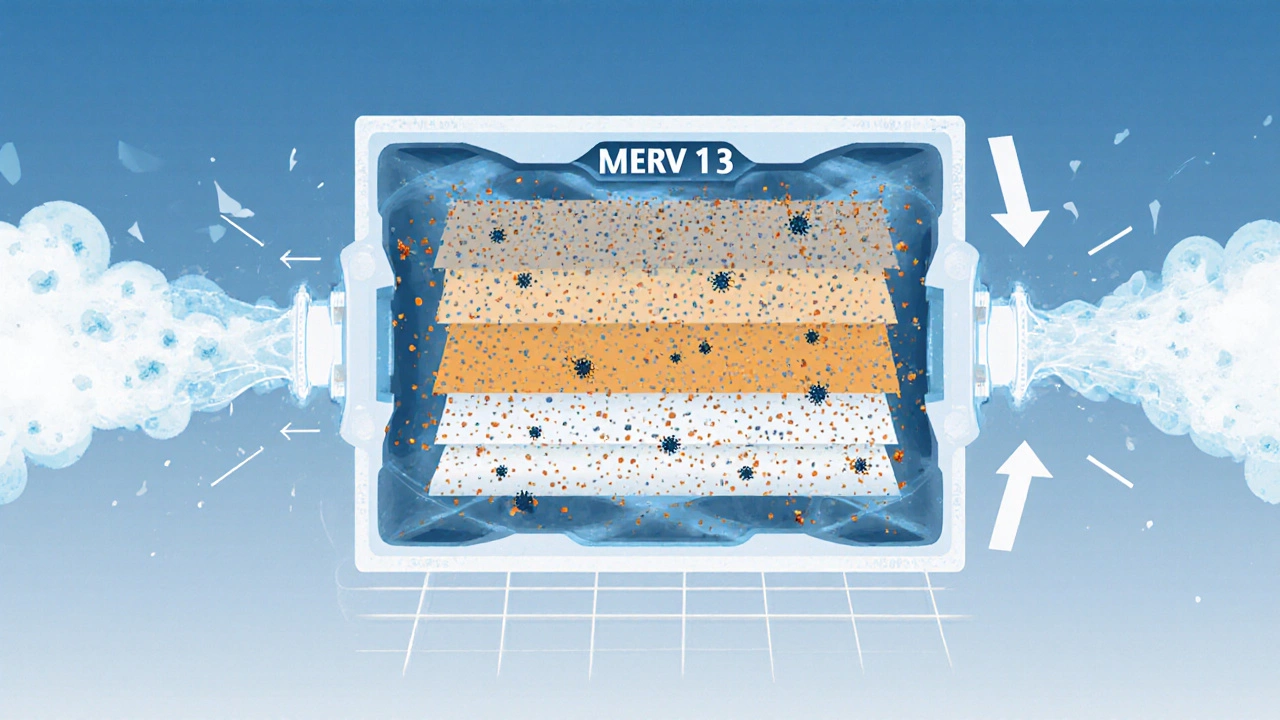Indoor Air Quality in Cars: What You Need to Know About Cabin Air and Health
When you sit in your car, you’re not just surrounded by metal and plastic—you’re breathing air that could be full of dust, pollen, exhaust fumes, and even mold. This is indoor air quality, the condition of the air inside enclosed spaces like vehicles, measured by the presence of pollutants, allergens, and ventilation efficiency. Also known as cabin air quality, it’s not something most drivers think about until they start sneezing, getting headaches, or feeling dizzy on short drives. Your car isn’t a sealed bubble—it’s a moving filter that pulls in outside air through the HVAC system. And if that filter is clogged, damaged, or missing, you’re literally breathing in road grime, brake dust, and exhaust gases from the car ahead of you.
Cabin air filter, a small but critical component that traps particles before they enter the passenger compartment. Also known as pollen filter, it’s the first line of defense against poor indoor air quality. Most cars have one, but many owners never check it. A dirty filter doesn’t just reduce airflow—it lets allergens, soot, and bacteria pass through. And if your car’s AC smells musty? That’s not just unpleasant—it’s mold growing in the ducts, fed by moisture and trapped dirt. This isn’t just about comfort. Studies show that drivers in vehicles with poor cabin filtration have higher levels of airborne particulates in their lungs compared to those with clean systems. Then there’s engine emissions, toxic gases like carbon monoxide and nitrogen oxides that can leak into the cabin through faulty seals, exhaust gaskets, or worn door gaskets. Also known as tailpipe intrusion, this is a silent danger. You won’t smell it, but it’s there—especially in traffic or when idling with the windows up. A cracked exhaust manifold or a loose tailpipe joint can turn your car into a moving pollution chamber. And don’t forget car ventilation, how air moves through the cabin, including recirculation settings, fan speed, and duct design. Also known as HVAC airflow, it’s not just about cooling or heating—it’s about replacing stale air with clean air. Many drivers keep the system on recirculate for too long, trapping pollutants inside instead of flushing them out.
These aren’t separate issues—they’re connected. A bad cabin air filter lets in more dust, which clogs the AC evaporator, leading to moisture buildup and mold. Mold spores then circulate through the ventilation system. At the same time, engine leaks add chemical pollutants that mix with the biological ones. The result? A toxic cocktail you breathe every time you drive. And it’s not just older cars. Even new models can have poor filter design or cheap materials that degrade fast. The fix isn’t expensive: replace the cabin filter every 12,000 to 15,000 miles, check for exhaust leaks during oil changes, and run the fan on fresh air mode when possible. You don’t need fancy gadgets. Just awareness and routine checks.
Below, you’ll find real-world guides on exactly what to look for, when to act, and how to fix the most common problems that ruin your car’s air quality—from clogged filters and musty AC to hidden exhaust leaks and faulty ventilation settings. These aren’t theory pieces. They’re step-by-step checks from people who’ve been there, smelled it, and fixed it before it cost them money or health.

Is MERV 13 Too High for a Home? Understanding When to Use High‑Efficiency Filters
Explore whether a MERV 13 filter is suitable for home use, covering benefits, drawbacks, HVAC compatibility, and maintenance tips in a clear, practical guide.
October 8 2025
Avoiding Trouble: Why Changing Your AC Air Filter Matters
Not changing your AC air filter can lead to a host of issues, from reduced energy efficiency to poor air quality in your home. Dirty filters can cause your AC unit to work harder, increasing electricity bills and shortening the unit's lifespan. Frequent replacements of air filters ensure a comfortable and healthy indoor environment. Learn how to maintain an efficient air conditioning system by simply changing the filter regularly.
March 8 2025